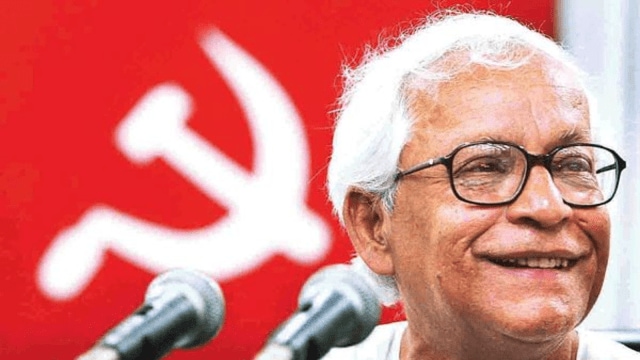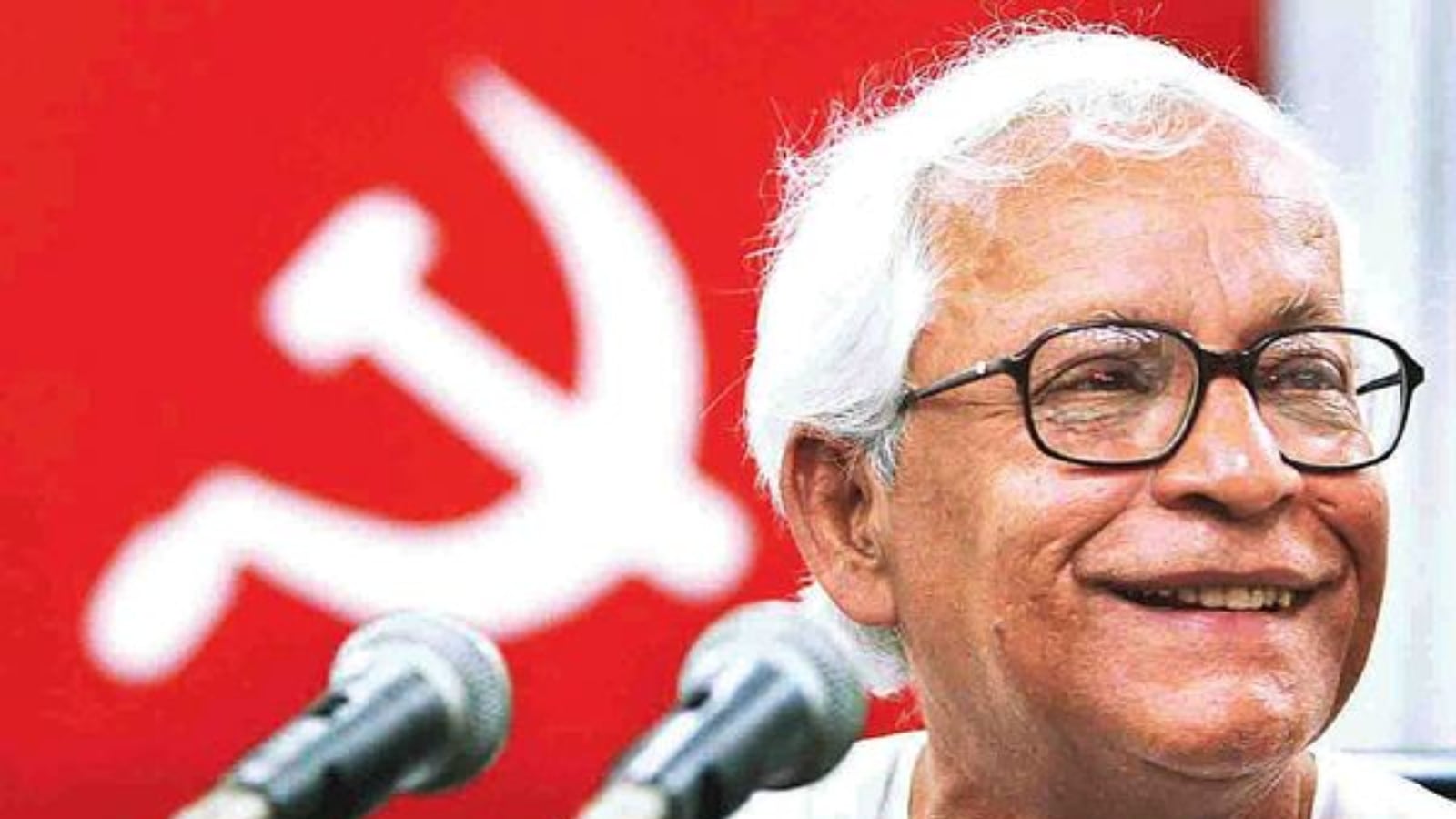
Buddhadeb Bhattacharya — Buddhada to us — passed away Thursday morning. He had been suffering for quite some time. His condition had worsened due to prolonged lung-related afflictions. In and out of the hospital, a couple of times his doctors managed to bring him back home. But not this time. He succumbed to a severe cardiac attack.
Buddhada was one of the younger generation of leaders who came into prominence and contributed to the resurgence of the Party and the Left in West Bengal in the turbulent late ’60s. Initiated through student activism, he soon became the main face of the youth movement as the first general secretary of the youth organisation in 1968 and built the democratic youth federation across the state. He emerged as a key leader and organiser of the younger generation, instrumental in mobilising the youth against severe assaults on the Party and the Left in resisting the semi-fascist terror of the ’70s.
After its emergence in 1977, the Left Front established itself at the helm of affairs in the political landscape of West Bengal. First as MLA and then as a prominent member of Jyoti Basu’s government, Buddhada played a key role in consolidating the advances on people’s issues. In 2000, when Jyoti Basu stepped down, Bhattacharya became the chief minister. He led the Party and the Left Front in the assembly elections in 2001 and subsequently in 2006.
Buddhada combined a firm commitment to the principles of the struggle for the emancipation of downtrodden sections with an effort to assert a modern and contemporary outlook geared to meet the changing global and national context. He believed deeply that the significant advances etched out by the Left and the progressive movement, based on economic and social justice ushered in by agrarian reforms, had led to stunning advances in deepening justice, improving the conditions of the working people and providing a strong foundation for further progress.
He wanted to give a vigorous push to the industrial policy initiated in 1994 to take a big leap in providing employment by building industry. Despite the decline in public sector investment in industry and agriculture, he believed, along with the collective opinion of the Party and the Left, that transforming the nature of Bengal’s economy with greater priorities on modern industry, was essential for the state, which was at a crossroads, to move forward. Critics denigrated him for this stance, but his approach was not at the cost of economic and social justice, which was on firmer ground.
Buddhada’s personal life was modest and frugal. He never moved out of his small two-bedroom flat in South Kolkata, even after reaching high office. He did not believe in enjoying anything beyond what was necessary for life. He deeply believed in a democratic style of government. While adhering to the basic principle of unity of the people and resolute struggle against communal and divisive forces, he endeavoured to broaden the appeal of the Left to younger generations. His interest in literature, culture and political change produced an array of publications in literary criticism, original plays, and translation of masterpieces of world literature.
He was a crusader against political vengeance and insisted on political engagement with his critics. His lifestyle and governance were beyond controversy and remain largely unblemished.
After the electoral setback of the Left in 2011, though saddened by the new situation, he was firm in his conviction that contemporary history would absolve him and his beliefs. The present situation in West Bengal and the country highlights the stark contrast between a genuine, insightful people’s leader and those who display opulence and grandeur, removed from the people’s aspirations. Bhattacharya’s life may have ended, but his legacy will be remembered in the times to come. The young people of West Bengal will always have a fond memory of how he inspired them towards a future of hope and transformation.



